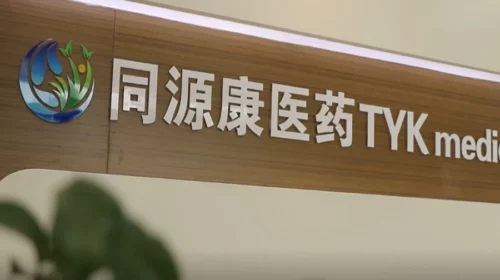IPO pitch puts BrainAurora’s earnings under the microscope

The provider of digital diagnostics and therapies has linked up with Chinese hospitals to detect conditions such as Alzheimer’s and brain trauma, but the business has yet to turn a profit
Key Takeaways:
- The firm will be aiming to avoid the fate of two predecessors in the field of digital therapeutics, which delisted from the U.S. stock market after persistent losses and capital shortages
- Meanwhile, the plunging market value of Immunotech Biopharm, headed by one of BrainAurora’s major investors, has cast a shadow over the listing
By Molly Wen
Hong Kong’s equity rally has given renewed hope to fledgling companies and loss-making tech firms that have been knocking on the door of the IPO market, keen to grab a capital boost.
The fresh momentum has finally propelled BrainAurora Medical Technology Ltd., a provider of medical diagnostics and digital therapies, through the IPO application process at the third attempt, as the company aims to step up its AI-powered treatment of cognitive impairments and injuries.
BrainAurora, based in China’s eastern province of Zhejiang, cleared the final entry hurdle at the end of October, after adding details of first-half earnings to its listing paperwork, and is now poised to debut on the Hong Kong Stock Exchange.
The prospectus describes BrainAurora, founded in 2012, as a pioneer in the field of medically applied brain science in China, using artificial intelligence to detect and address a wide range of cognitive issues caused by neurodegenerative diseases, psychological disorders, strokes, head injuries or development deficiencies.
Its core product uses neural networks and clinical data to assess a patient’s condition and provide personalized digital therapies such as cognitive training tasks.
In 2018, the company gained medical approval for the first such cognitive therapy tool in China, awarded a medical device certificate by the Hunan authorities. In 2020 the system was approved for screening, treatment and ongoing analysis for eight indications including dementia and depression.
BrainAurora mainly provides hospitals with a software system that enables clinicians to assess cognitive issues and design interventions or rehabilitation programs for sufferers. The prospectus said the firm had helped more than 120 hospitals to set up cognitive centers. Medical institutions pay the company a negotiated price based on the patient’s in-hospital use of the software and treatment coverage under China’s national insurance program. The company also provides software solutions directly to individual patients at 480 yuan ($66.5) per month.
Digital therapeutics is a field of healthcare using high-tech solutions to prevent, diagnose, manage and treat medical problems. Globally, around 13 companies offer such services for cognitive impairment, with about 19 products approved by the U.S. Food and Drug Administration (FDA). China has approved around 100 such products.
The fate of two previous stars of this niche market does not bode well for BrainAurora. U.S.-based Pear Therapeutics filed for bankruptcy protection in April 2023, while another digital medical company, Better Therapeutics, also delisted in March 2023.
Both firms faltered over financial losses and a shortage of funds. Pear Therapeutics, once hailed as the first digital therapeutics stock, was valued at about $1.6 billion when it went public on the Nasdaq in 2021. The company’s assets were auctioned off for only $6 million after the bankruptcy, inflicting huge losses on investors.
Control shift
BrainAurora has also been in the red for a long time, although its top line has been improving. The company generated revenues of 11.29 million yuan in 2022, increasing to 67.2 million yuan in 2023 and logged turnover of 51.89 million yuan in the first half of this year. However, R&D expenses and hefty losses on financial liabilities left the company in the red to the tune of 502 million yuan, 359 million yuan and 114 million yuan over the same period. In fact, the company has not broken even in the 12 years it has been in business.
Perhaps anticipating a long path to profitability, one of BrainAurora’s founders, Xiang Huadong, retreated from the company four years ago. The expert in the field of brain science resigned in July 2020 and transferred all his shares at the end of that year. From December 2020, the chairman of Hong Kong-listed Immunotech Biopharm (6978.HK) began to build up holdings in BrainAurora. Tan Zheng is currently the chairman and one of the controlling shareholders of BrainAurora, with a stake of 25.38%.
With Tan on board, BrainAurora also stepped up its fund-raising efforts. The company completed a Series B+ financing in September 2021, realizing a valuation of 513 million yuan. In March 2022, the company gained 138 million yuan in Series C financing from investors such as Anji Shundian Equity Investment and Tianjin Chengye, helping to raise the value to 2.68 billion yuan. BrainAurora was valued at 2.69 billion yuan, or 180.68 yuan per share, after the company wrapped up its C+ financing in March last year.
In an unexpected twist, four days before BrainAurora’s initial IPO application in August 2023, joint sponsor CICC suddenly took over $7 million worth of shares from the major shareholder. The company’s post-investment valuation soon shot up to $390 million.
BrainAurora said it would use the IPO proceeds to invest in research and development, fund clinical trials on a wider range of indications, help more hospitals set up cognitive centers, and strengthen its AI capabilities.
The outlook for the digital therapeutics market could be promising, with cognitive issues on the rise in an aging population. However, the struggles of Immunotech Biopharm cannot easily be overlooked. The biomedical company, which also has Tan at the helm, has yet to launch any products on the market. Its share price has recently fallen below HK$2, more than 80% below the value of its listing price of HK$11 in 2020.
Therefore, investors are likely to keep a close eye on the state of BrainAurora’s bottom line, despite a rising revenue stream.
To subscribe to Bamboo Works weekly free newsletter, click here






